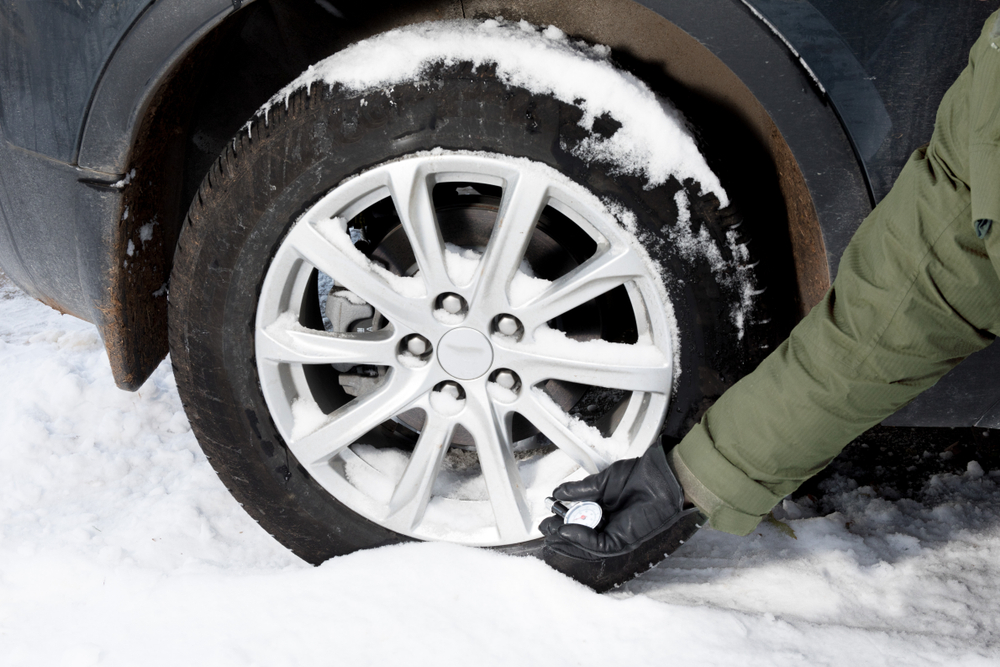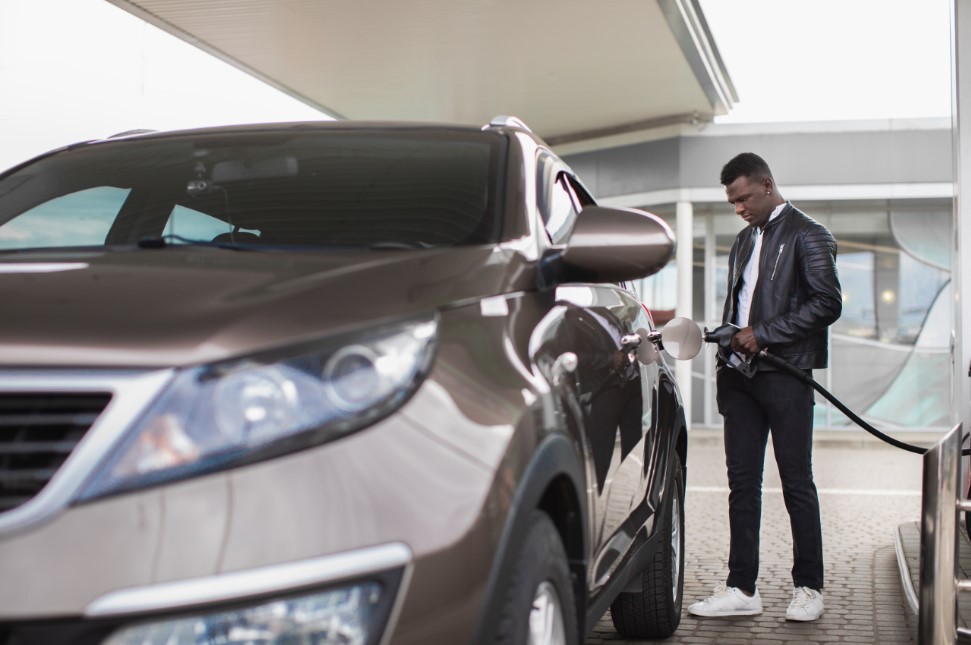How Cold Weather Can Affect a Car

Understanding Winter-Related Car Troubles Can Keep Your Car Running Smoothly
Winter is coming! This means the spirit of the holidays, sweatshirts, roaring fires, and quality time with family and friends is upon us. And for many people in the US, it also means harsh winter weather!
Whether you dread the months ahead or love winter, one thing is for certain: your car hates it. If it could talk, you would hear all about it, especially if you’re one of the many drivers that miss out on essential winter maintenance!
Today, Christian Brothers Automotive’s team of auto service professionals are here to help you discover the problems that commonly arise for car owners during the colder months and what you can do about them.
What Kind of Problems Can Cold Weather Create for Your Car?
Cold weather can cause many problems for your car if you don’t take the time to get your car ready to handle the winter temperatures. Today, we’ll discuss three common wintery problems you may face with your car.
Wintery Problem #1: Battery Problems
The most obvious place it affects your car is your battery. Cold temperatures slow down everything, including the chemical reactions that take place in your battery that are required to produce enough energy to start your engine. Winter can make your car battery feel sluggish or even dead.
Most modern batteries are designed to deliver an abundance of power at what is considered a “cold crank” temperature, but older batteries or batteries which are further into their lifespan may even fail to start your car on a particularly frigid and frosty morning. Even though the battery’s charge may not have changed, it will still respond much more slowly and may not provide the power to start your vehicle.
Wintery Problem #2: Unnecessary Stress on Your Engine
Winter mornings of the past were a lot harder on vehicles than they are today. In winter’s past, cars would need to take 15 to 20 minutes to let things warm up to avoid sputtering and even stalling.
Fortunately, modern cars don’t have this problem and can be quickly driven with the turn of a key and a shift of gear. A long period of idling your car in the winter can be bad for your engine, as it could interrupt the appropriate ratio of air and fuel in your engine.
However, it’s still important that drivers don’t skip the early morning winter warm-up entirely. If you take less than 30 seconds to give your engine’s oil a chance to warm up and thin out, you could be placing unnecessary stress on your engine! It’s okay to sit for a moment to let things warm up while you sip coffee, check your social media, or pray before a busy day.
Tips on Properly Warming Up Your Vehicle During Winter
Just follow these steps to get things started on the right foot:
- Start your car as you always would
- Switch on the defroster (this will clear the windows as things warm up)
- Let the engine run for 30 seconds (maybe longer if you’re dealing with ice or snow)
- Slowly switch gears and press on the gas
- Take things nice and slow and easy for the first trek of your journey
As if modern car technology couldn't get any better, more and more drivers are taking advantage of remote start capability. This doesn’t always allow you to start the engine, but it at least gets the cabin warmed up so giving the engine more time to warm up is a bit easier.
Wintery Problem #3: Cracked Windshields
Finally, your windshield will be particularly vulnerable to cracking in the cold. When your windshield is covered in frost, shocking it by pouring hot water can cause a sudden jolt in energy, causing the materials in your glass to crack. Whatever you do, do NOT use hot water or a sudden blast of hot air to clear away the frost!
Tips for Car Winterization
As we mentioned earlier, it’s extremely important to ensure that your vehicle is getting the right seasonal maintenance before the winter months roll in. Some ideas include:
Upgrade Your Windshield Fluid
Replacing your current windshield fluid with a winter blend washer fluid can be a smart move ahead of winter, especially if you live in or are planning to travel through an area prone to severe winter weather.
A specialty blend of winter washer fluid will remain in liquid form down to -40 degrees, which allows you to use it to cut through ice that may be blocking your vision, along with the help of your defroster, of course.
If you’re unsure of what kind of windshield fluid you’re currently using, start topping off your washer fluid in late Fall with winter rated fluid, just to make sure it’s ready for the cold!
Check & Change Your Oil
Check your oil, among other fluids, and get an oil and filter change ahead of winter. It’s recommended by our automotive professionals to choose a synthetic oil for wintertime.
If your vehicle is a 2015 model or newer, odds are that it already uses synthetic oil. On the other hand, older cars likely use traditional oil and should benefit greatly from switching to a synthetic blend for the winter. But, why?
Why Synthetic Oil is Perfect for Cold Weather
When traditional motor oil gets cold, it thickens. When synthetic oil gets cold, it thins, eliminating the need to idle for a moment in order for your oil to warm up. This makes the latter the optimal choice for winter weather!
However, at the end of the day, if you have any questions about what type of oil is right for your vehicle, ask a professional auto repair expert or consult your vehicle’s owner’s manual.
Pack a Winter Safety Kit
While it’s always a good idea to have some sort of emergency kit in your vehicle year-round to ensure you’re prepared for anything, it’s an even better idea to make sure it’s outfitted with winter-specific items, such as:
- Ice scraper
- Collapsible shovel
- Extra warm clothing
- Blankets
- Rope or chain
- Flares
- Pack of matches
- Flashlight and batteries
- Extra battery pack
- Non-perishable snacks and water
- Jumper cables
- Extra antifreeze
Check Your Tires
Check your tire tread and pressure. Cold weather means the pressure in your tires is going to decrease. Make sure they stay within operating guidelines for maximum safety and performance, particularly on slippery roads. Likewise, check your tires and make sure you have enough tread. Tires that are low or balding are exponentially more dangerous on icy or slippery winter roads.
Invest in a Set of Winter Tires
You may want to look into investing in a set of winter tires, depending on the area where you live and the amount of snow and ice you encounter. All-season tires will still get you where you need to go, but winter-specific tires can provide you with better traction through ice, snow, and slush.
Christian Brothers Automotive Wants to Keep You Safe All Winter Long
While many of these tips can be done on your own, if you find yourself having trouble, and just want to get a proper second opinion, or need repairs, turn to a local auto repair shop for help!
Christian Brothers Automotive provides more than just trustworthy auto repair and maintenance services from certified professionals—we also offer a refreshing and kind customer service experience that you won’t find anywhere else.
We strive to make the experience one that you’ll remember and keep coming back for again and again. Whether it’s transparent and upfront advice about your vehicle or simple things like a courtesy shuttle ride or a comfortable waiting area, we want to make your visit to our local shop a positive one.
Check out our store locator to find your closest CBA shop and experience our Nice Difference for yourself!
This blog was written in October 2018 and updated in August 2023 to reflect current industry standards and best practices.


[1].jpg)
sunwash-tech-with-customer.png)

